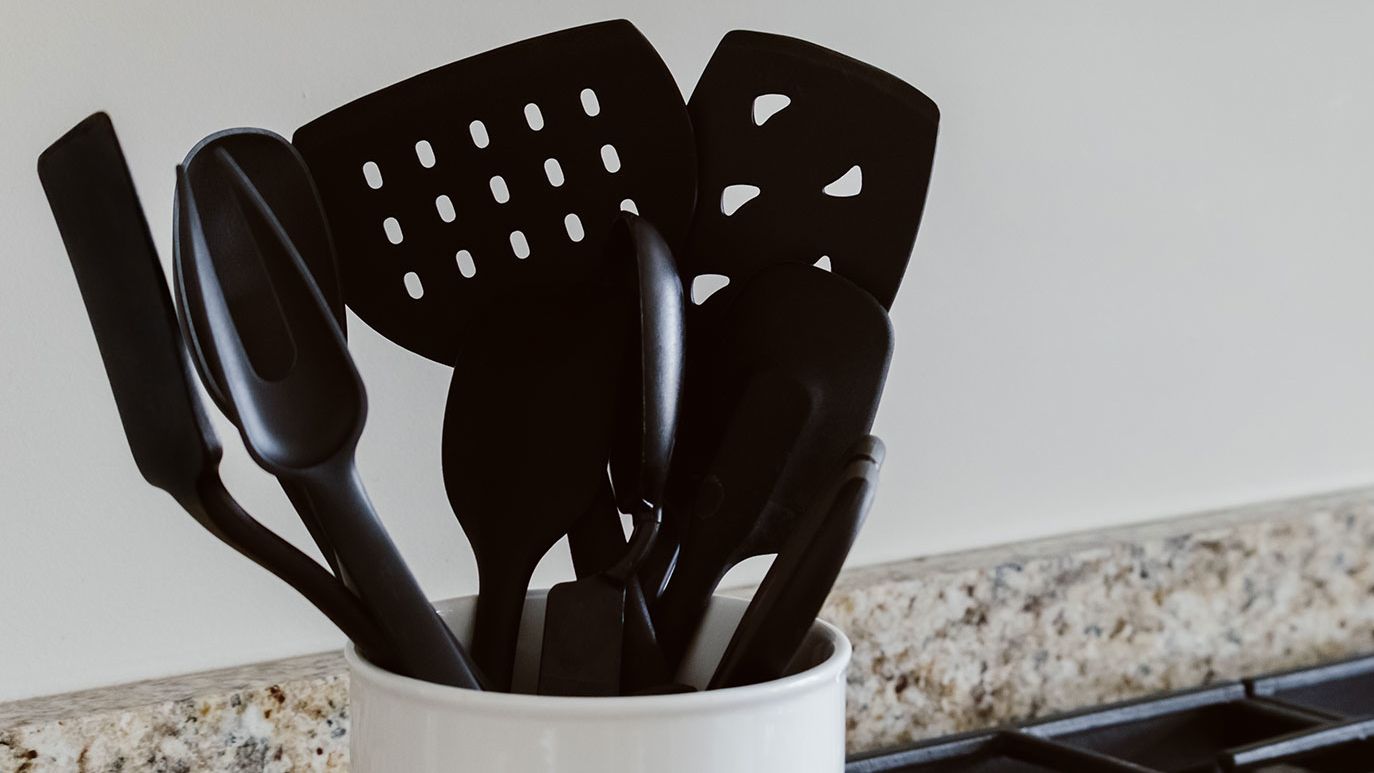I’ve always found it counterintuitive to use any kind of plastic for cooking. I don’t trust these silicone baking molds either. And: plastic containers don’t belong in the microwave.
Always stick to wood, metal and glass/ceramics in the kitchen!
Another bad plastic item for the kitchen: plastic cutting boards. If you look at them up close, you can see that every time you cut on them with a sharp knife, lots of small micro plastic pieces are cut off.
If you look at them up close, you can see that every time you cut on them with a sharp knife, lots of small micro plastic pieces are cut off.
Ugh, at this point I’m resigned to the fact that there’s always going to be something.
Notwithstanding their impressive feats for the time, Ancient Romans had lead pipes for example.
Today we have microplastics (and some lead issues still, too, from lead solder, etc.) Among other things.
Tomorrow, it’ll be something like nanites accumulating in our body, or gamma radiation exposure from faulty shielding in whatever spacecraft futurehumans are flying in.

And we’ll always have the moron libertarians telling us that it’s the consumer’s fault for not knowing that corporation x hid nanites in their toothpaste or whatever the fuck.
You should have known that this previously unknown tech was hidden in a product that only has (maybe) one competitor (who probably also put nanites in their toothpaste). This is your fault
As if this isn’t the exact reason government exists.
There is always going to be something. Strive not for perfection but for continuous improvement. Corporate was right about a few things. One of them being: QRCI.
Quick Reaction, Continuous Improvement.Kaizen.
It will be tribbles.

Tomorrow, it’ll be something like nanites accumulating in our body
I get that already with hemochromatosis! They’re just dumbots for now but some day the ferretin deposited in my organs will make great building materials for nanites to turn me into grey goo.
Plastic cutting boards are sadly the cheaper and less work requiring option for restaurants/ larger kitchens. Wood just doesn’t survive going through an industrial dishwasher that many times and nobody is going to hand wash 10+ wood boards a day. I haven’t properly looked into what plastic our kitchen’s plastic boards are, but it seems to be more durable than the usual home ones.
I worked in a private school kitchen briefly, and was absolutely shocked they still had butcher block benches for food prep and such. Like, the school was built in the 50s/60s at least, and these things looked original. We always put some barrier between the food and the actual table surface when we worked on them, but still…
I even brought it up at one point and was told the health inspector never mentioned it. Personally, I both believe that (health inspectors are very 50/50 on how thorough, and most aren’t looking to shut places down), and find it hard to believe they never mentioned the tables that had obvious grooves in them from knives of yesteryear, and discolorations from whatever organisms were growing in the pores and what not.
But outside of that, yes, 100%, professional kitchens would either need dozens and dozens of wooden boards to cycle through throughout their shift. Every kitchen I worked in used plastic, and you can buy the boards they use in pro kitchens online from restaurant supply stores.
I made the mistake of buying a plastic cutting board exactly one time lol
Good thing I use metal on my non-stick pans 😎
The nonstick keeps the fat from clinging to my arteries. * health *
I know this is irony but I still feel the need to tell you and the world that the bits of non stick coating are not toxic in itself if digested. it fucks up your pan but nothing more. It’s high temperatures that release toxic compound from the coating.
They just stay in your gut and then later get activated and release the toxins the next time you’re out in the sun for a few hours.
Source: science
ThAt explains why I have a twin growing out of my stomach that looks like my mom.
Thank you for bringing a little education to my chaotic posting.
Recent science has shown what they say to not be true. PTFE can even off gas without being under heat at all. And even if it was true, you’re still increasing demand for something that causes an insane amount of environmental damage and the factories do cause a significant amount of PFAS to get into everyone’s bodies.
Good to know. Sucks with how hard it can be to find certain cookware that isn’t non-stick, but at least it’s doable. (Bonus, if something like a pan isn’t non-stick it can last a very long time so you won’t have to hunt often.) I avoid it because I don’t want to deal with not being able to scrub hard or use Bar Keepers Friend.
Good ol’ cast or heavy stamped skillets. Well seasoned, and simply follow some rules that you can google. A lot less maintenance intensive than their reputation suggests.
Good point, we need non-stick food, or maybe non-stick arteries
Just use cast iron and metal tools
Ah yes, cast iron, the perfect material for those with mobility and strength issues. Set it and forget it.
Stainless steel is lighter, and more importantly doesn’t contain flame retardant.
Right, but the comment I responded to only mentions cast iron, as if it’s the only or even best alternative.
Yeah, I don’t think it was intended to be comprehensive given that it was a single sentence.
Where’s the line for definitively comprehensive? How many sentences?
Just use cast iron and metal tools
only mentions cast iron
For the actual cooking pan, yes that’s what the comment was saying. The tools were specifically mentioned as separate to the pan.
The point was the actual cooking pan is too heavy for people with all sorts of medical issues to lift.
Carbon steel is great too. Many of the advantages of cast iron with lower weight and still no PFOA.
There’s more ways to cook than just a stovetop. There is nothing wrong with baking and roasting meat and vegetables. Roasted broccoli is delicious with just some butter/oil and salt.
If you’re having mobility and strength problems, active cooking with flipping and stirring hot ingredients may be a safety issue regardless of material of cookware.
I don’t think telling people with mobility and strength problems “too bad, you don’t get to eat stuff you like because you’re not strong enough to lift the pan” is fair to them.
I wholeheartedly agree. Lighter cookware is a better solution to this.
Changing how the meals are cooked is definitely better than accidental injuries or losing one’s home to a grease fire though. A pot of boiling water is fairly comparable to a cast iron skillet in weight; if someone can’t lift it and strain pasta in a sink, how is that safe?
New super power confirmed: ability to walk on the sun.
This seems so obvious… Must be the plastic in my brain.
Anyone have any reccos for inexpensive wooden kitchen utensiles? I’m seeing Crate and Barrel for ~$85
Ikea has them for $2-8, depending on the size and type of wood. $85 is for twee decoration or something, yikes.
Are they good? I try to avoid buying future trash, even if it costs more money.
They’re solid wood, it’s hard to misuse those so badly that they become nonfunctional unless you’re washing them in the dishwasher (terrible for all wood) or letting them sit in dirty dishes for ages or something. I haven’t had any issues with the wooden spoons I got from them several years ago.
Good to hear, thank you!
Another W for recycling
You can’t say retardant any more. It’s flame development disabler












